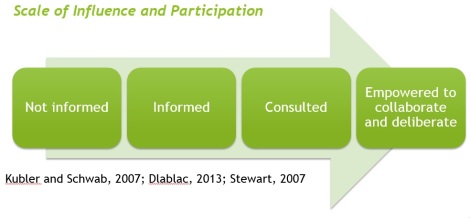With a municipal election in the recent past, the implications of returning or newly elected leadership at the local government level is still top of mind for many British Columbians. The municipal tier is one of three levels of government we have in British Columbia, and while elections at all levels typically include renewed promises and hopes for accountability, transparency, and democratic decision-making by elected officials, there is a scale at which decision-making authority is incredibly ambiguous: the scale of the city region. In this post I’ve outlined some findings from my recently completed study of decision-making in the city-region of metro vancouver.
With an increasingly urban population, and an increasing share of the province’s population in the lower mainland, there are imperatives to coordinate and make joint decisions across all 24 local authorities – from Bowen Island to Abbotsford. The Metro Vancouver organization includes boards comprised of elected officials from each of the local authorities (including one First Nation and one electoral area). This approach to governing city-regions is unique in North America, and possibly the world. For my recently defended thesis in the SFU Urban Studies program I undertook a case study of Metro Vancouver and one particular effort to engage in collaboration and cooperation at the scale of the city-region: the Regional Growth Strategy.
While no two city-regions are governed alike, there are some categories and concepts which describe how decision-making can take place at the metropolitan scale. One of these concepts is new regionalism, which basically entails the creation of some kind of forum (formal or informal) for existing local authorities and organizations to get together and make joint decisions. A key distinction is that new regionalism does not entail the creation of a separately elected government or group of representatives (and also does not entail amalgamation). This approach holds out two primary possibilities from a democratic standpoint: 1) that decision-making can include civic groups and/or associations as equal participants in decision-making, and 2) that decision-making can look different than at other levels of formal government – it can be consensual, collaborative, and deliberative (in contrast with the majority voting that often takes place at other scales).
The central question for the research study was whether or not these two possibilities were borne out at Metro Vancouver, in the case of the process to create the Regional Growth Strategy (RGS). By undertaking a detailed document review, combined with in-depth interviews, I ascertained that local authorities were enabled and empowered to collaborate and deliberate with one another, as envisioned as a possibility in new regionalism. Further, that Metro Vancouver facilitates a considerable degree of learning and deliberation between local authorities on an ongoing, consistent, basis. However, while civic associations were consulted as part of the process to create the RGS, they were not empowered to collaborate together with each other, or together with municipal authorities, in any kind of meaningful or sustained way.
Why are collaboration, deliberation, and consensual decision-making important at the regional scale?
Because at the regional scale, imperatives to engage in cooperation include items such as: dealing with air pollution, identifying population growth targets, transit corridors, economic growth and strategies, and environmental protection. In fact, in BC, the requirement for regional growth strategies to deal with these broad, holistic, and sweeping issues is enshrined in the legislation which empowers regional districts to create growth strategies.
By definition, none of these items are within the mandate of any single governmental jurisdiction. Addressing them will require collaborative solutions that extend to the private and civic sectors alike. For this reason, it is crucial that decision-making at the regional scale extend beyond government representatives to include other regional agents, such as civic groups.
In the case of the RGS there were three factors that limited Metro Vancouver’s ability to provide a collaborative forum of the type envisioned under new regionalism:
- Metro Vancouver’s institutional framework,
- The historical focus on sustainability in regional planning, and
- The more regulatory approach that was applied in the case of the RGS, in contrast to prior regional plans.
This more regulatory approach narrowed the range of issues which could be addressed or brought up in the process to create the plan, and restricted the potential for collaboration across multiple agents and civic associations that might be possible at the scale of the city-region.
The RGS aspires to create complete communities, support a sustainable economy, and protect the environment. None of these will be achieved by any level of government working independently. For items such as these, and for decision-making at the scale of the city-region, it is imperative to undertake approaches that achieve collaboration and deliberation across multiple agents, both governmental and non-governmental.

